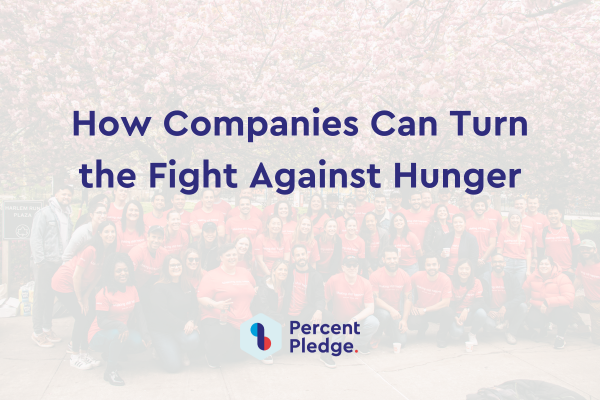Volunteering has often been associated with the act of giving back to the community, team bonding, and generally supporting social causes. All of this is true. But, volunteering can offer much more than just a sense of fulfillment from helping others. It can also be a powerful tool for professional development, happiness, and well-being. And in this time of uncertainty and worsening employee morale, what is more important than the professional development, happiness, and well-being of your people?
According to a recent survey conducted by the Corporation for National and Community Service, 80% of respondents said that they view volunteering as beneficial to professional development. The reasons behind this high response rate are plentiful:
- Skill expansion: volunteering allows employees to expand their skill sets and gain valuable experience in areas they may not have otherwise had access to in their day-to-day job. For example, a marketing professional may have the opportunity to lead a team of volunteers for a fundraising event, giving them experience in project management, event planning, and leadership. These new skills can be applied back to their job and can even lead to career advancement opportunities.
- Networking: volunteering provides employees with the chance to network with others outside of their industry or company. This can lead to new partnerships, collaborations, and even job opportunities in the future. The connections made while volunteering can be invaluable and can help employees grow their professional network.
- Employee morale: When employees feel that they are making a positive impact on their community, it can boost their overall sense of purpose and fulfillment in their work. This can translate to increased job satisfaction, which can lead to better retention rates and more positive company culture.
Another study by the Journal of Happiness found that people become happier when they volunteer, from a sample of more than 70,000 people. And critically, this new research included findings that dispel a longstanding doubt on the impact of volunteering: “Volunteering is only for certain people and those people are happy already, so the benefit of volunteering is biased” - nope. The new study not only found that you don’t need to be ‘pre-happy’ to benefit from volunteering but also found that people who start with lower levels of happiness feel an even bigger boost from volunteering. For companies struggling to engage the unengaged - which is A LOT of companies - this is a game-changer.
Overall, volunteering as a vehicle to boost professional development and employee satisfaction is clear. What’s more, companies that support and encourage their employees to volunteer sends a clear message that they care about their employees' growth and development. This can create a sense of loyalty and pride in the company that increases employee retention unlike anything else.
Employees are people and people care deeply about their communities. Given that, beyond morality and caring, isn’t it just smart business to engage your employees in volunteering programs that are proven to make them happier and make them associate their communities with you - their employer?
Volunteering is not just an act of charity. It’s also a powerful tool for professional development and employee satisfaction. And it’s also smart business. So, whether it's through a company-wide volunteering program or individual volunteer efforts, everyone can benefit from the power of volunteering.



.png)
